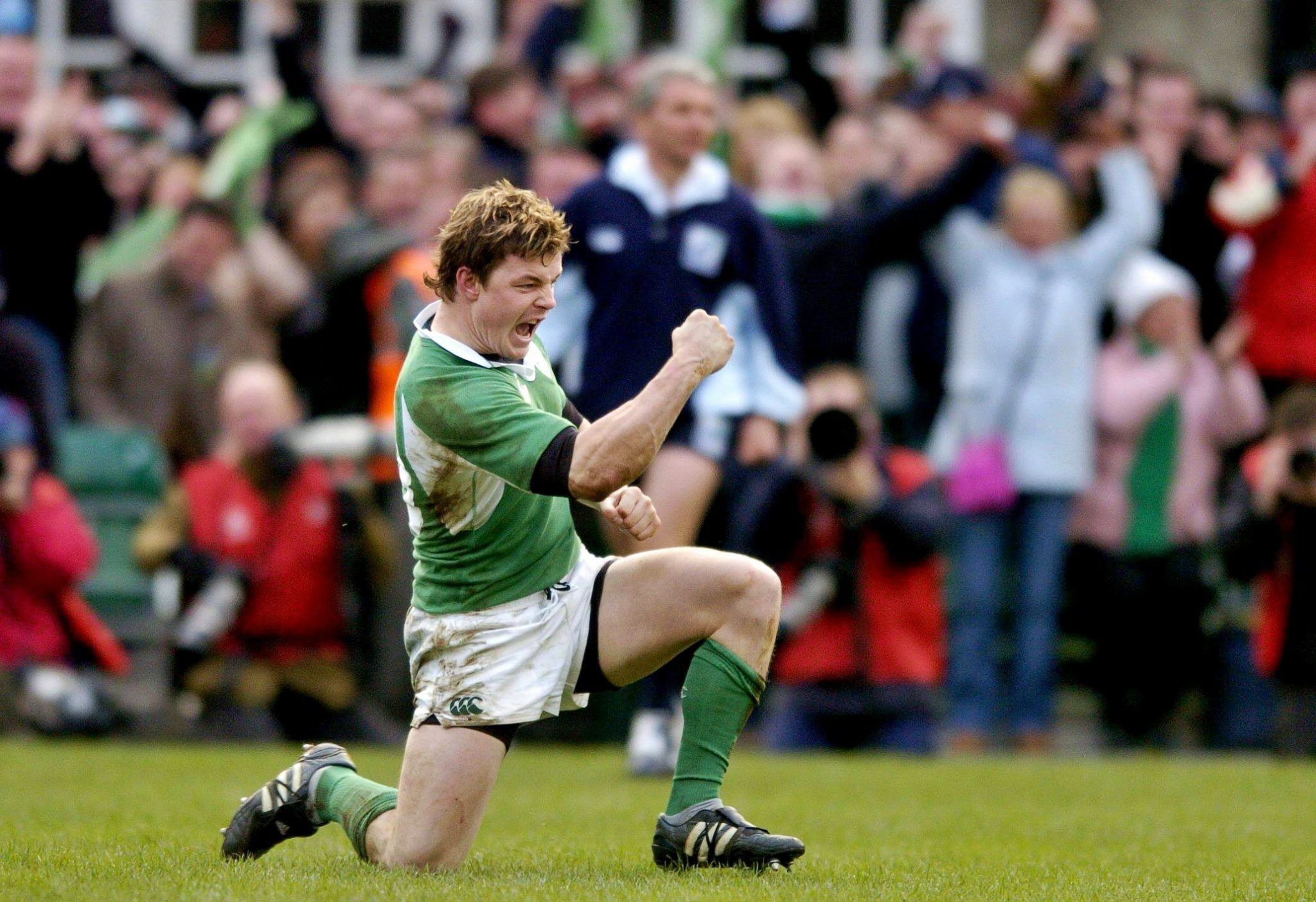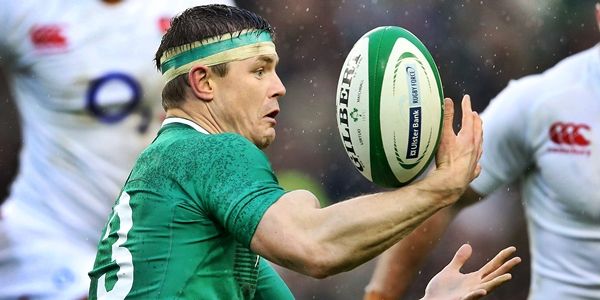

Share
15th September 2019
02:37pm BST

 From as soon as he came into the Ireland set-up, Brian O'Driscoll was possessed with a sense that he could be the game-breaker. The match-winner.
From as soon as he came into the Ireland set-up, Brian O'Driscoll was possessed with a sense that he could be the game-breaker. The match-winner.
"I always thought that. When we lost [to Argentina] in Lens in 1999 [at the World Cup], I thought I was going to be the difference that night. "I was like, 'It's grand. Get us some ball and, do you know what, just give me five minutes, give me 10 minutes and I'll get it done here'. But it didn't happen. But that comes with backing yourself and believing yourself." "There are times when there were question marks around yourself," O'Driscoll adds, "and your confidence takes a dint but, for the most part, I had big belief around myself and in the team's ability."O'Driscoll captained Ireland for the first time in November 2002, aged 23, and led his side to an 18-9 victory over Australia. He would not take up the role full-time until after Keith Wood retired from Test rugby after the 2003 World Cup. O'Driscoll's captaincy coincided with an up-surge in Irish fortunes. There were ceremonial trophies for home wins over the likes of Australia and South Africa while Triple Crowns in 2004, 2006 and 2007 were the first bits of Home/Six Nations silverware in nearly two decades. The country's most capped player, and record try-scorer, says he picked up a lot from Woods' captaincy style but also took from many of the captains he played under at school, for UCD, Leinster, Ireland and even in underage GAA.
"Leadership is absolutely what you do rather than what you say, first and foremost. And you talk about respect. That's how you get respect - by doing, not saying. "I look at people that I think are great leaders. They don't have to be the world's greatest orators but they're great leaders because of the way they play, the attitude they have or the way they train, or how they live their life. For me, that's great leadership. Captaincy can be quite simplistic but, for me, that was always trying to be the best player on the pitch. Be it in training or in games - try and be the best player."Leading by example was most certainly the way O'Driscoll went about his captaincy, from that 2002 taster until 2008, when his form slipped a touch from his usual, stellar heights.
 He credits his chats with sports psychologist Enda McNulty for rediscovering his 'A' game and focusing on what he did best. Around the same time, too, O'Driscoll recognised that he did not possess the same acceleration as his late teens and early to mid 20s.
He says he became 'more of a facilitator, rather than a strike player' but he made up for the lessening of clean breaks and tries by contributing more around the breakdown and by slipping teammates in for scores with the sort of passes he himself would love to be on the end of.
2009 to 2012 was O'Driscoll Mark II and a player aware of how his talents could best help his team.
He credits his chats with sports psychologist Enda McNulty for rediscovering his 'A' game and focusing on what he did best. Around the same time, too, O'Driscoll recognised that he did not possess the same acceleration as his late teens and early to mid 20s.
He says he became 'more of a facilitator, rather than a strike player' but he made up for the lessening of clean breaks and tries by contributing more around the breakdown and by slipping teammates in for scores with the sort of passes he himself would love to be on the end of.
2009 to 2012 was O'Driscoll Mark II and a player aware of how his talents could best help his team.
"There was a period in my late 20s and early 30s where Ireland had success, Leinster had success, and I was obviously a contributor to that. But I also lived off the confidence and the momentum of those teams. "You look back to different individual performances and feeling good, all the way back to France in 2000, where I felt great that day. I remember feeling fast and that I could cause problems. I suppose you might not expect to score three tries and for us to win for the first time in 30 years, but those moments you look back on and say, 'There's a reason I played well and it's because I felt great'. "That might only happen to you - feeling that good - around for or five times during your career but it's just a matter of - Can you pack those together for the really good games in your career? There's no point doing it in the PRO14 against Zebre. You know, save them for England!"There are many players in the current Ireland squad that would attest to that, and O'Driscoll will be hoping that the likes of Best, Peter O'Mahony, Johnny Sexton and more will up the ante when the time comes. He insists Ireland can surpass anything the World Cup sides he played for, from 1999 to 2011, ever achieved. The time has come to break the mould. [caption id="attachment_206048" align="aligncenter" width="2048"]
 Guinness has partnered with Ireland’s No. 1 Believer, Brian O’Driscoll, (pictured at the Guinness Storehouse) to highlight the importance of belief and showcase the reasons to believe. Fans wanting to demonstrate their belief in the Irish rugby team can avail of Belief Giphys available here. ©INPHO/Dan Sheridan[/caption]
Ireland have the backing and belief from their greatest ever rugby player.
Let's see how it all plays out in Japan.
WATCH THE BRIAN O'DRISCOLL AND RORY BEST EPISODE HERE
https://www.youtube.com/watch?v=gfk_nVuUu7o
Guinness has partnered with Ireland’s No. 1 Believer, Brian O’Driscoll, (pictured at the Guinness Storehouse) to highlight the importance of belief and showcase the reasons to believe. Fans wanting to demonstrate their belief in the Irish rugby team can avail of Belief Giphys available here. ©INPHO/Dan Sheridan[/caption]
Ireland have the backing and belief from their greatest ever rugby player.
Let's see how it all plays out in Japan.
WATCH THE BRIAN O'DRISCOLL AND RORY BEST EPISODE HERE
https://www.youtube.com/watch?v=gfk_nVuUu7o

Explore more on these topics: